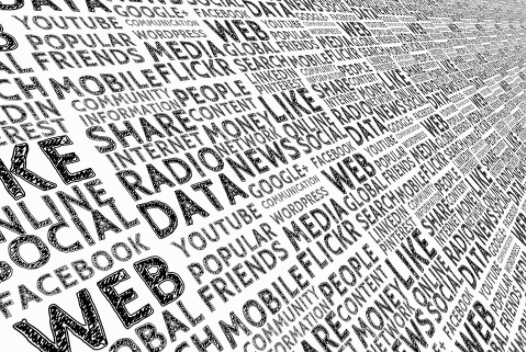It’s safe to say, as 2017 comes to a close, that social media is everywhere. From Facebook to Twitter to Instagram to Snapchat, we are increasingly connected to friends, family, businesses, and even celebrities through these electronic avenues of communication. Twenty years ago, no one maintained relationships with every friend from high school, nor were they privy to each acquaintance’s personal photographs or announcements.
Social media’s rise in popularity has numerous benefits. Long-distance relatives can keep up with one another through a steady stream of pictures and messages. Businesses can market their product in under 300 characters. People from all locations and walks of life can come together to share in similar interests and topics, or to debate and engage. Social media provides a platform that outpaces that of any other form of communication. But these aspects that make social media an interesting and informative part of our lives are also aspects that researchers have found may lead to emotional difficulties for its users, including worsening, or even causing, anxiety.
You may feel connected in the moment that you scroll through social media, but this feeling is often replaced by negative emotions – such as, however unexpectedly, loneliness. Sometimes social media users feel as though they are less successful than their friends, behind schedule in their own lives as they see photos of a friend’s new house or read about an acquaintance’s new job. Particularly for children and adolescents, who use social media at increasingly younger ages, platforms like Facebook and Twitter can increase the need for social validation and assurance. Social media feeds the brain’s reward centers as children may place their worth or value on receiving “likes” and approval from their peers. They “add” and “remove” friends. They compare themselves to their friends in new ways, such as through “selfies” or in seeing their peers interacting at parties to which they weren’t invited. They may feel left out of plans and discussions.
Cyberbullying thrives through social media, gripping young children and teenagers in a cycle that never ends, because the social media itself never shuts down. These same platforms create opportunities for good and many positive benefits, but they also create opportunities for hurtful comments and negativity that threatens mental health.
Overuse of social networking has been correlated in research studies with feelings of real-life loneliness, and a lack of real-life social interaction. Social media has been found to be highly addictive, with many users feeling severely anxious or excluded when they are unable to access their social media accounts. A 2012 study found that 51% of those polled about their social media use declared that their lives had actually been made worse by the use of social media, with almost as many describing intense emotional discomfort when away from their social media accounts, and 60% admitting the need to turn off their electronic devices in order to keep themselves from checking their newsfeeds.
It appears that anxious people may gravitate toward social media as a means of feeling included, but social media regularly makes some people feel excluded, overwhelmed, and addicted. In the previously referenced study, a quarter of respondents even reported problems in their in-person relationships, including school or work, due to confrontational behavior between ‘friends’ online.
So, what are some steps that can be taken in the new year to receive more benefit from social media and less of these negatives?
Take Breaks
Studies have shown that when participants are asked to remove themselves from all forms of communication, including phones, television, and radio, they experience symptoms similar to those seen in substance abuse withdrawal. Constant access to social media also primes us – it makes us hypervigilant to receiving news and information, which overwhelms and worries us. Strive in the new year to take short breaks from your social media use. Spend an hour playing a board game with your family, or teaching your child how to write an old school thank you card for all those holiday presents.
Ensure a Healthy Lifestyle and Set Limits
Cook a healthy meal or enjoy a walk outside. Walking is not only wonderful exercise, it’s also great for reducing anxiety and improving mental health. Insist and expect that your child will follow your example. Children need limits with social media, and for their usage to be closely monitored. Social media and phone use have been shown to be detrimental to sleep, another factor in worsening or creating anxiety symptoms, as well as causing problems with school. Put away the phones at least an hour before bedtime.
Contact a Specialist
If you are concerned about you or your child’s social media use exacerbating their anxiety, Neurobehavioral Associates may help. We can provide you with comprehensive neurobehavioral evaluations, as well as an extensive network of referral services, including any needed psychiatric or psychotherapy services, so that you or your child can live your best life.
References:
Davey, Graham C. L. “Social Media, Loneliness, and Anxiety in Young People.” Psychology Today, Psychology Today, 15 Dec. 2016.
AnxietyUK.
Donnelly, Laura. “Facebook and Twitter Feed Anxiety, Study Finds.” The Telegraph, Telegraph Media Group, 8 July 2012.

